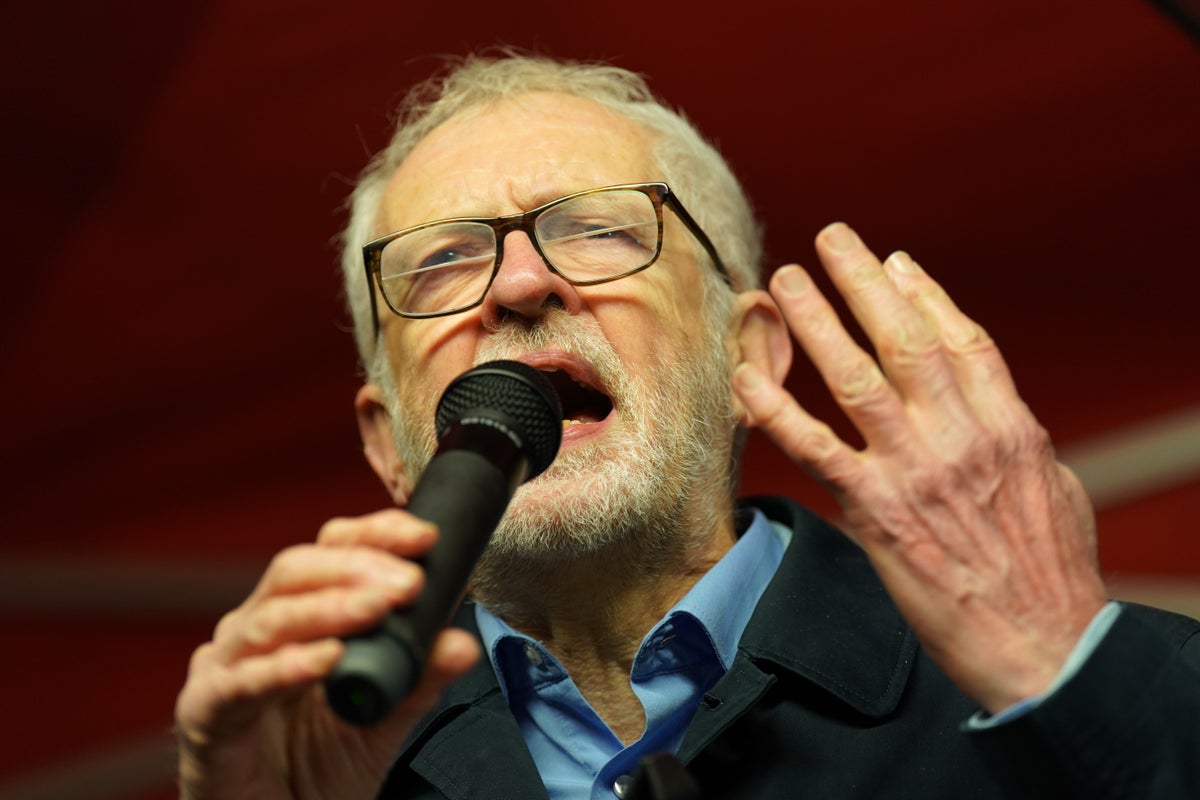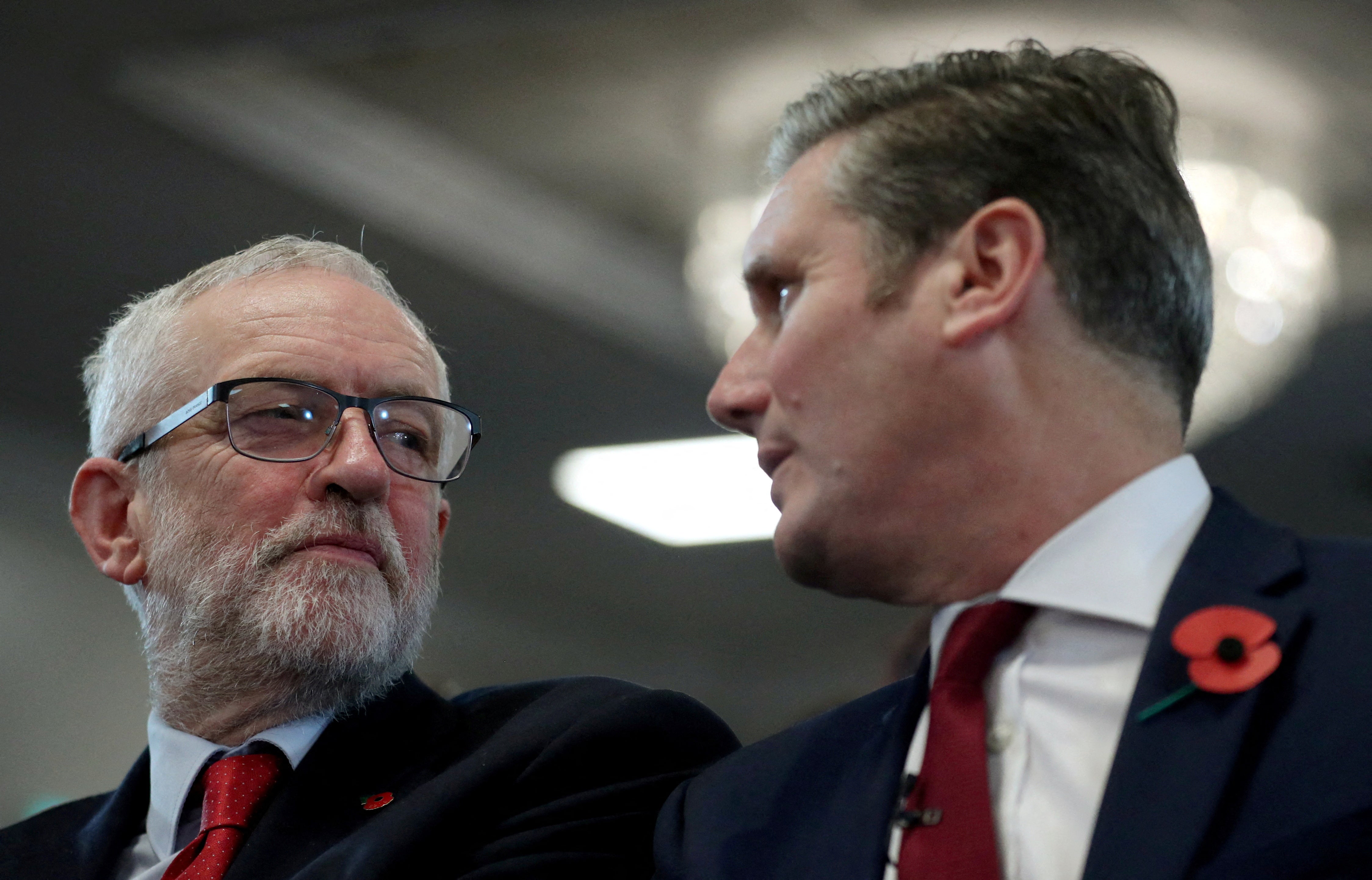
Jeremy Corbyn has lashed out at Sir Keir Starmer’s decision to bar him from standing as a Labour candidate at the next general election – calling it a “flagrant attack” on democracy.
The former Labour leader, who currently sits as an independent MP, hit out at his successor and described the move as a “divisive distraction from our overriding goal: to defeat the Conservative Party”.
It comes after Sir Keir unequivocally barred Mr Corbyn from standing as a Labour candidate at the next general election during a speech on his party’s crackdown on antisemitism on Wednesday morning.
The Labour leader also welcomed the decision by the Equality and Human Rights Commission to lift the party out of special measures after it was ordered to take action two years ago over its past failings on the issue.
“Jeremy Corbyn will not stand for Labour at the next general election as a Labour Party candidate. What I said about the Labour Party changing, I meant, and we are not going back,” Sir Keir said.
He added that the party was “unrecognisable from 2019” before delivering a message to left-wingers unhappy with his approach. “To them, I say in all candour: we are never going back. If you don’t like it, nobody is forcing you to stay.”
Responding to Sir Keir, Mr Corbyn said: “Any attempt to block my candidacy is a denial of due process, and should be opposed by anybody who believes in the value of democracy.”
He said blocking his candidacy was thwarting the democratic rights of Labour Party members in the constituency of Islington North. “It is up to them – not party leaders – to decide who their candidate should be,” Mr Corbyn said.
Mr Corbyn, who has been MP for Islington North since 1983, has been sitting as an independent since Sir Keir withdrew the Labour whip from him in October 2020 over his response to the EHRC antisemitism investigation.
The former leader was readmitted to the party by a disciplinary panel as a rank-and-file member, but was then denied the parliamentary whip after a personal intervention by Sir Keir.
Critics of Mr Corbyn say that antisemitism ran out of control in the party under his watch, while his defenders claim that the problem was exaggerated by Labour opponents to undermine him politically.
The left-wing former leader did not say in his statement posted on Twitter whether he would stand as an independent against an official Labour candidate.
“At a time when the government is overseeing the worst cost-of-living crisis in a generation, this is a divisive distraction from our overriding goal: to defeat the Conservative Party at the next general election,” he said.

Mr Corbyn said he was still “proud to represent the labour movement in parliament”, adding: “I am focused on standing up for workers on the picket line, the marginalised, and all those worried about their futures. That is what I’ll continue to do. I suggest the Labour Party does the same.”
Writing for The Independent, Labour MP Dame Margaret Hodge said Sir Keir was “right to confirm” that Mr Corbyn would not be a candidate for the party.
“His stubborn refusal to accept his role in allowing antisemitism to flourish, and his assertion that his opponents within the party had exaggerated the issue, means he remains part of the problem and not the solution,” she said.
Labour MP Diane Abbott, one of Mr Corbyn’s longest-standing allies, suggested his clash with Sir Keir was inevitable because of Brexit, saying that the left-wing former leader “in his heart of hearts is a Brexiteer”.
She told the News Agents podcast: “Jeremy in his heart of hearts is a Brexiteer, and Keir Starmer at that point was passionately pro-European.”
Pressed on whether Mr Corbyn really wanted Britain to leave the EU, she said: “Yes, I’ve known Jeremy a long time. He saw it as a conspiracy of business people and so on. So, that was the common view on the left in the 80s.”
She added: “But Jeremy has always been about uniting the party. He knew most party members were pro-European. But himself, I would say, deep down he was a Brexiter.”







